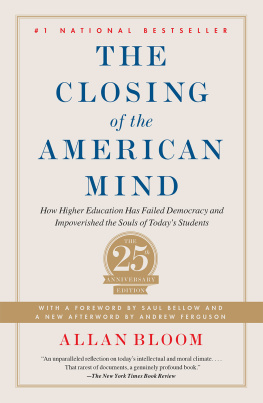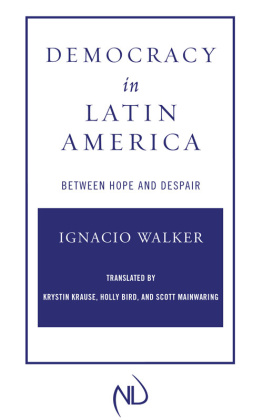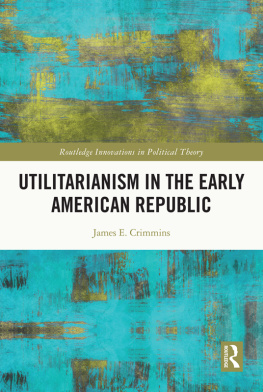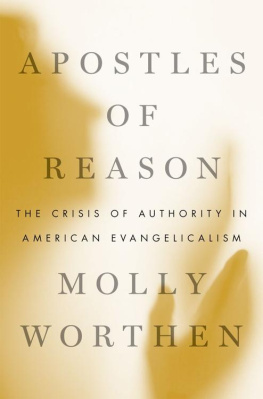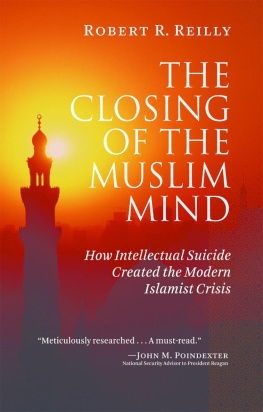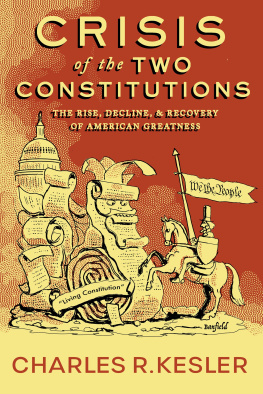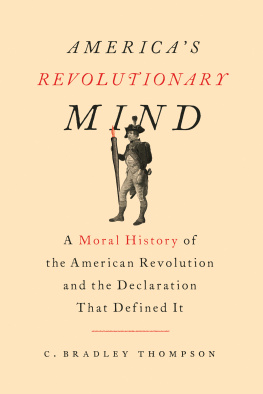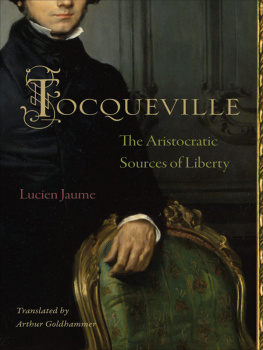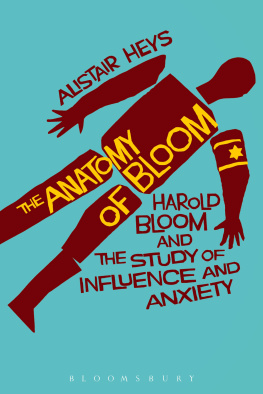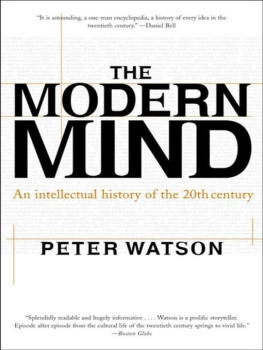Allan Bloom - The Closing of the American Mind
Here you can read online Allan Bloom - The Closing of the American Mind full text of the book (entire story) in english for free. Download pdf and epub, get meaning, cover and reviews about this ebook. year: 1987, publisher: Simon Schuster Trade, genre: Religion. Description of the work, (preface) as well as reviews are available. Best literature library LitArk.com created for fans of good reading and offers a wide selection of genres:
Romance novel
Science fiction
Adventure
Detective
Science
History
Home and family
Prose
Art
Politics
Computer
Non-fiction
Religion
Business
Children
Humor
Choose a favorite category and find really read worthwhile books. Enjoy immersion in the world of imagination, feel the emotions of the characters or learn something new for yourself, make an fascinating discovery.
- Book:The Closing of the American Mind
- Author:
- Publisher:Simon Schuster Trade
- Genre:
- Year:1987
- Rating:4 / 5
- Favourites:Add to favourites
- Your mark:
- 80
- 1
- 2
- 3
- 4
- 5
The Closing of the American Mind: summary, description and annotation
We offer to read an annotation, description, summary or preface (depends on what the author of the book "The Closing of the American Mind" wrote himself). If you haven't found the necessary information about the book — write in the comments, we will try to find it.
The Closing of the American Mind — read online for free the complete book (whole text) full work
Below is the text of the book, divided by pages. System saving the place of the last page read, allows you to conveniently read the book "The Closing of the American Mind" online for free, without having to search again every time where you left off. Put a bookmark, and you can go to the page where you finished reading at any time.
Font size:
Interval:
Bookmark:
IT MAY BE THE MOST IMPORTANT WORK OF ITS KIND BY AN AMERICAN SINCE WORLD WAR II.
Chicago Tribune
THE CLOSING OF THE AMERICAN MIND
Allan Bloom
Commands ones attention and concentrates ones mind more effectively than any other book I can think of in the past five years.
Christopher Lehmann-Haupt, The New York Times
A penetrating look at the state of modern American society... filled to overflowing with trenchant insights into American life.... Required reading for every thoughtful citizen concerned with the decline of American society.... It will challenge you to think.
The New American
Essential reading for anyone concerned with the state of liberal education in this society.
The New York Times Book Review
Important and controversial... couldand shouldserve as a major resource in the effort to rethink the very nature and purpose of American higher education.
San Francisco Chronicle Book Review
Every chapter, if not every page, offers something delightful, something puzzling, something outrageous.
St. Louis Post-Dispatch
Elegant, passionate, wide-ranging.... His prose is rhapsodic, compelling, personal and reassuring. He writes from a deep love of history and intellectual tradition.
Los Angeles Times Book Review
Graceful and grave... a serious-minded, sinewy and wise work.
Virginia Pilot & The Ledger-Star
Has the density of fiction, the sting of satire, the lucidity of philosophy... all the compact fluidity and dazzle of Emersons essays.
The Christian Science Monitor Book Review
How Higher Education Has
Failed Democracy and
Impoverished the Souls of
Todays Students
Professor Bloom has his own way of doing things. Writing about the higher education in America, he does not observe the forms, manners and ceremonies of what is called (usually by itself) the community of scholars. Yet his credentials are irreproachable. He is the author of an excellent book on Shakespeares politics, and has translated Platos Republic and Rousseaus Emile . It will be difficult for nettled colleagues to wave him away, and many will want to do just that, for he is shrewd and mettlesome, as well as learned, and a great observer of what Mencken would call, when he was being mean, the higher learning.
But Professor Bloom is neither a debunker nor a satirist, and his conception of seriousness carries him far beyond the positions of academia. He is not addressing himself primarily to the professors. They are welcome to listenand they will listen because they come under heavy firebut he places himself in a larger community, invoking Socrates, Plato, Machiavelli, Rousseau and Kant more often than he does our contemporaries: The real community of man, in the midst of all the self-contradictory simulacra of community, is the community of those who seek the truth, of the potential knowers of all men to the extent they desire to know. But in fact, this includes only a few, the true friends, as Plato was to Aristotle at the very moment they were disagreeing about the nature of the good. They were absolutely one soul as they looked at the problem. This, according to Plato, is the only real friendship, the only real common good. It is here that the contact people so desperately seek is to be found. This is the meaning of the riddle of the improbable philosopher-kings. They have a true community that is exemplary for all the other communities.
A style of this sort will seem to modern readers marred by classical stiffnessTruth, Knowers, the Good, Manbut we can by no means deny that behind our objection to such language is a guilty consciousness of the flimsiness, and not infrequently the trashiness, of our modern talk about values.
The sentences above are taken from the conclusion of Blooms book. Parting from his readers, he is at his most earnest. He writes in a different vein when he is discussing the power of professional economists, the separation of modern science from the natural philosophy that preceded it, the phenomenon called cultural relativism, or the real, the bottom-line, significance of an M.B.A. degree. He often flashes out provocatively and wickedly. Speaking of the place of the humanities in the universities, he calls them a submerged old Atlantis, to which we turn again to try to find ourselves now that everybody else has given up. The humanities are like the great old Paris Flea Market where, amidst masses of junk, people with a good eye found cast away treasures. Or else, They are like a refugee camp where all the geniuses driven out of their jobs and countries by unfriendly regimes are idling: The other two divisions of the university have no use for the past When he is not busy with the nature of the Good, he can hit, with the best (or should I say the worst) of them, very hard. As a scholar he intends to enlighten us, and as a writer he has learned from Aristophanes and other models that enlightenment should also be enjoyable. To me, this is not the book of a professor, but that of a thinker who is willing to take the risks more frequently taken by writers. It is risky in a book of ideas to speak in ones own voice, but it reminds us that the sources of the truest truths are inevitably profoundly personal. Bloom tells us: Throughout this book I have referred to Platos Republic , which is for me the book on education, because it really explains to me what I experience as a man and a teacher. Academics, even those describing themselves as existentialists, very seldom offer themselves publicly and frankly as individuals, as persons. So Professor Bloom is a front-line fighter in the mental wars of our times, and as such, singularly congenial to me. (If he can be personal, I see no reason why I should remain the anonymous commentator.)
In his concluding pages, Bloom tells of a student who, after a reading of the Symposium , said that it was hard today to imagine the magic Athenian atmosphere, in which friendly men, educated, lively, on a footing of equality, civilized but natural, came together and told wonderful stories about the meaning of their longing. But [adds Bloom] such experiences are always accessible. Actually, this playful discussion took place in the midst of a terrible war that Athens was destined to lose, and Aristophanes and Socrates at least could foresee that this meant the decline of Greek civilization. But they were not given to culture despair, and in these terrible political circumstances, their abandon to the joy of nature proved the viability of what is best in man, independent of accidents, of circumstance. We feel ourselves too dependent on history and culture. What is essential about any of the Platonic dialogues is reproducible in almost all times and places. This thinking might be what it is all for. Thats where we are beginning to fail. But it is right under our noses, improbable but always present.
I take this statement very seriously and am greatly moved by it, seeing in it the seed from which my life grew. For as a Midwesterner, the son of immigrant parents, I recognized at an early age that I was called upon to decide for myself to what extent my Jewish origins, my surroundings (the accidental circumstances of Chicago), my schooling, were to be allowed to determine the course of my life. I did not intend to be wholly dependent on history and culture. Full dependency must mean that I was done for. The commonest teaching of the civilized world in our time can be stated simply: Tell me where you come from and I will tell you what you are. There was not a chance in the world that Chicago, with the agreement of my eagerly Americanizing extended family, would make me in its image. Before I was capable of thinking clearly, my resistance to its material weight took the form of obstinacy. I couldnt say why I would not allow myself to become the product of an environment . But gainfulness, utility, prudence, business, had no hold on me. My mother wanted me to be a fiddler or, failing that, a rabbi. I had my choice between playing dinner music at the Palmer House or presiding over a synagogue. In traditional orthodox families small boys were taught to translate Genesis and Exodus , so I might easily have gone on to the rabbinate if the great world, the world of the streets, had not been so seductive. Besides, a life of pious observance was not for me. Anyway, I had begun at an early age to read widely, and I was quickly carried away from the ancient religion. Reluctantly, my father allowed me at seventeen to enter the university, where I was an enthusiastic (wildly excited) but erratic and contrary student. If I signed up for Economics 201, I was sure to spend all my time reading Ibsen and Shaw. Registering for a poetry course, I was soon bored by meters and stanzas, and shifted my attention to Kropotkins Memoirs of a Revolutionist and Lenins What Is to Be Done? My tastes and habits were those of a writer. I preferred to read poetry on my own without the benefit of lectures on the caesura. To rest my book-strained eyes I played pool and Ping-Pong at the mens club.
Next pageFont size:
Interval:
Bookmark:
Similar books «The Closing of the American Mind»
Look at similar books to The Closing of the American Mind. We have selected literature similar in name and meaning in the hope of providing readers with more options to find new, interesting, not yet read works.
Discussion, reviews of the book The Closing of the American Mind and just readers' own opinions. Leave your comments, write what you think about the work, its meaning or the main characters. Specify what exactly you liked and what you didn't like, and why you think so.

